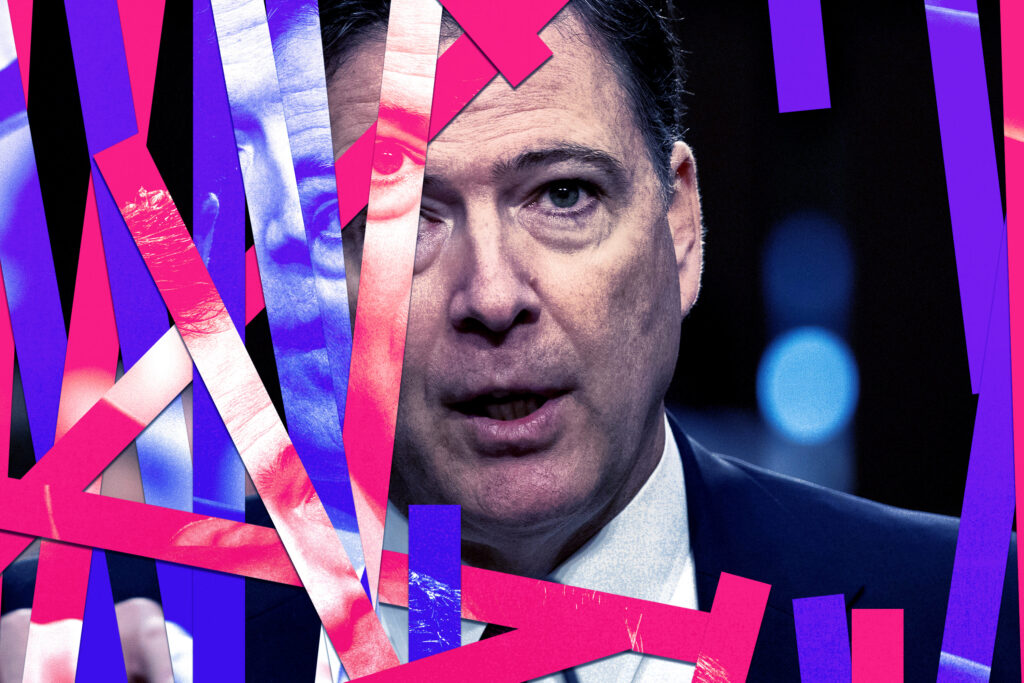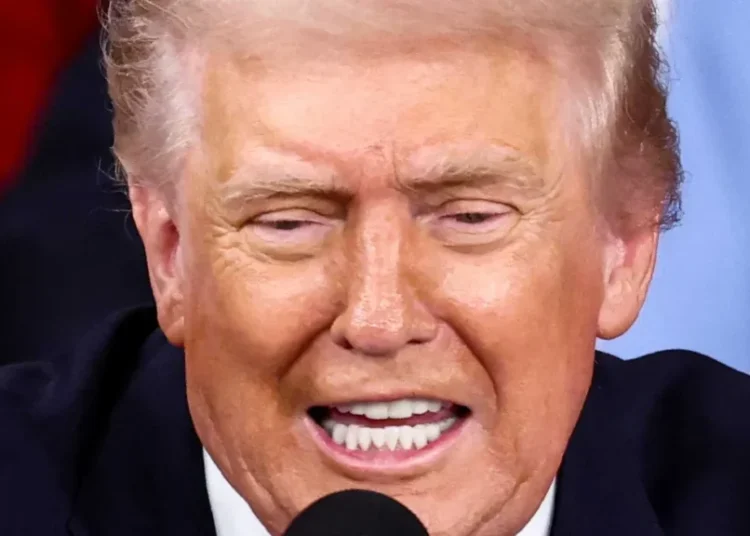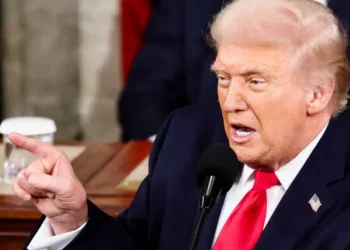Ian Ayres is a professor at Yale Law School and co-author of “Retirement Guardrails.” Saikrishna Prakash is a professor at the University of Virginia School of Law and the author of “The Presidential Pardon: The Short Clause With a Long, Troubled History.”
Before the case was dismissed this week over a separate issue, lawyers for James B. Comey argued in federal court that the former FBI director’s indictment was improperly motivated by political animus. Many share the view that this and other recent high-profile Justice Department cases have been driven by partisanship or revenge. Of course, President Donald Trump also believes that prosecutors have targeted him for political reasons.
We are caught in a vicious cycle. The in-group is using the law against the out-group, which will surely feel empowered to respond in kind once the tables turn again. Americans widely believe that prosecutions are increasingly being weaponized, even if they disagree about who started it. To stop the spiral and restore confidence, we propose a novel prosecutorial check.
In recent months, the president has calledfor his attorney general to prosecute adversaries. In addition to Comey’s indictment for allegedly lying to Congress, New York Attorney General Letitia James was indicted on two counts of mortgage fraud (that case was dismissed this week along with Comey’s). Rep. LaMonica McIver, a New Jersey Democrat, faces assault charges over some jostling with immigration officers during a protest. Other public figures have fallen under federal investigation. Meanwhile, Trump has characterized his four 2023 indictments as illegitimate “lawfare” meant to thwart his return to office.
In deciding whether to prosecute politicians, the Justice Department must navigate two vital imperatives: Politicians should not be immune from prosecution, and the decision to prosecute should not be influenced by partisan politics.
The Justice Department used to have substantial internal safeguards against politically motivated prosecution. But the Trump administration has gutted these. In May, department leaders suspended a decades-old requirementthat prosecutors seek approval from its Public Integrity Section before charging members of Congress. Simultaneously, that section was reduced from more than 30 attorneys to just two. The president has brazenly discarded the long-standing norm against White House influence on prosecutorial decision-making.
As politicization has ramped up, the judicial checks on partisan prosecutions have remained static. Targets of political prosecutions can challenge their indictments. But courts rarely dismiss indictments on grounds of selective or vindictive prosecution.
We propose that Congress give federal judges another option. When a prosecution appears politically motivated, a judge should have the discretion to impanel a “prosecutor jury” to assess the propriety of the indictment.
The prosecutor jury would be composed of 20 randomly selected former U.S. attorneys, evenly divided between those nominated by Democratic and Republican presidents. A prosecution could proceed only if at least two-thirds of this panel — 14 out of 20 — concluded that the indictment was appropriate. This supermajority would ensure that at least a substantial minority of prosecutors nominated by a defendant’s own party supported the prosecution.
Former U.S. attorneys are uniquely qualified to guard against weaponized prosecutions. Unlike ordinary grand jurors, they have extensive experience making charging decisions, understand prosecutorial strategy and can distinguish legally sound theories from problematic ones.
This framework would help ensure that politicians are not above the law, since they would remain subject to prosecution. But politicians and, more important, the nation would be better protected from partisan prosecutions. Should a prosecutor jury approve an indictment, Americans would know that a bipartisan supermajority of professionals endorsed it.
To test our framework, we surveyed former U.S. attorneysregarding the Trump indictments. The responses revealed significant nuances across cases and political lines. The Florida classified-documents prosecution of Trump received substantial majority support from both Democratic-and Republican-nominated attorneys. Interestingly, some prosecutors nominated by Democrats expressed reservations about the case.
Responses to the case charging Trump in the attempt to overturn the 2020 presidential election tell a different story. Once we balanced for respondents’ political ties, the indictment lacked support from even a simple majority — well short of our two-thirds requirement. These results demonstrate that former U.S. attorneys can rise above party lines to apply professional judgment developed through their considerable experience.
These heartening results signal the utility of a prosecutor jury. If a case persuades 14 of 20 prosecutors, that is sound evidence that it has merit.
Critics may object that our proposal undermines rule of law by making prosecution more difficult. This criticism misunderstands what the rule of law requires. The Bill of Rights mandates numerous protections that make conviction more difficult, from unanimous jury verdicts to rules about gathering evidence. Moreover, the Constitution grants special protections for certain officials. Members of Congress possess a privilege against certain arrestsand a speech-and-debate privilege. Presidents and judges have official immunity. These safeguards are not exceptions to the rule of law — they are part of its responsible exercise.
In our hyperpartisan era, a statutory fix might seem impossible. But elected officials have a personal interest in checking prosecutors focused on vengeance or political advantage. Congressional Republicans believe that Jack Smith, the special prosecutor in both the classified-documents and 2020 election cases, wrongly obtained their phone records. Their Democratic counterparts must now feel a similar dread.
We, too, are members of opposing parties, and we both fear that the weaponization of prosecutions gravely threatens the rule of law. No one can be blind to the reality that both parties may engage in prosecutorial malfeasance. Any solution must therefore command bipartisan credibility. Prosecutor juries are the bulwark we need.
The post Lawfare is a downward spiral. Here’s an escape hatch. appeared first on Washington Post.




